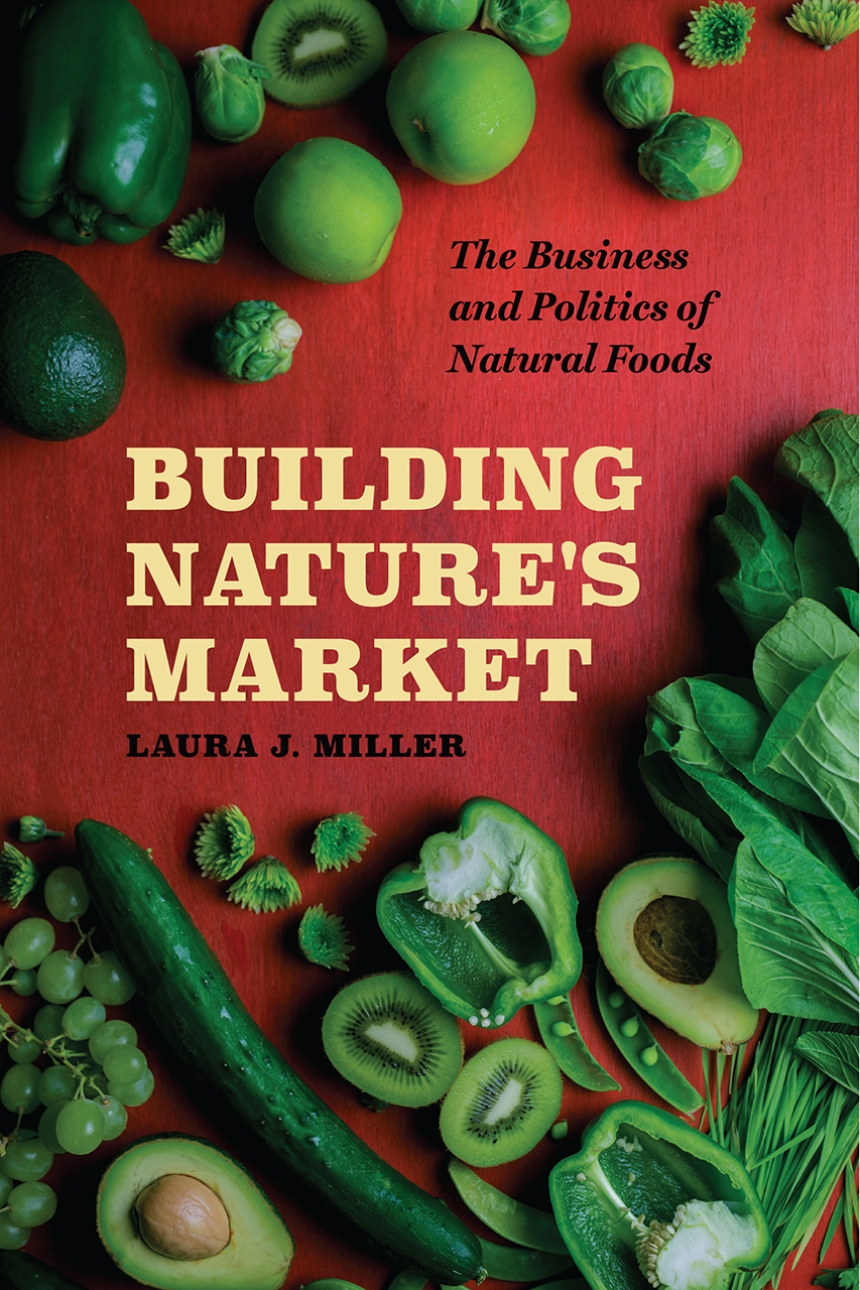Building Nature’s Market
The Business and Politics of Natural Foods
For the first 150 years of their existence, “natural foods” were consumed primarily by body builders, hippies, religious sects, and believers in nature cure. And those consumers were dismissed by the medical establishment and food producers as kooks, faddists, and dangerous quacks. In the 1980s, broader support for natural foods took hold and the past fifteen years have seen an explosion—everything from healthy-eating superstores to mainstream institutions like hospitals, schools, and workplace cafeterias advertising their fresh-from-the-garden ingredients.
Building Nature’s Market shows how the meaning of natural foods was transformed as they changed from a culturally marginal, religiously inspired set of ideas and practices valorizing asceticism to a bohemian lifestyle to a mainstream consumer choice. Laura J. Miller argues that the key to understanding this transformation is to recognize the leadership of the natural foods industry. Rather than a simple tale of cooptation by market forces, Miller contends the participation of business interests encouraged the natural foods movement to be guided by a radical skepticism of established cultural authority. She challenges assumptions that private enterprise is always aligned with social elites, instead arguing that profit-minded entities can make common cause with and even lead citizens in advocating for broad-based social and cultural change.
Building Nature’s Market shows how the meaning of natural foods was transformed as they changed from a culturally marginal, religiously inspired set of ideas and practices valorizing asceticism to a bohemian lifestyle to a mainstream consumer choice. Laura J. Miller argues that the key to understanding this transformation is to recognize the leadership of the natural foods industry. Rather than a simple tale of cooptation by market forces, Miller contends the participation of business interests encouraged the natural foods movement to be guided by a radical skepticism of established cultural authority. She challenges assumptions that private enterprise is always aligned with social elites, instead arguing that profit-minded entities can make common cause with and even lead citizens in advocating for broad-based social and cultural change.
288 pages | 8 halftones | 6 x 9 | © 2017
Economics and Business: Business--Business Economics and Management Studies
History: American History
Sociology: Formal and Complex Organizations, Social Change, Social Movements, Political Sociology
Reviews
Table of Contents
Preface and Acknowledgments
Chapter 1 Markets and Movements
Chapter 2 Escaping Asceticism: The Birth of the Health Food Industry
Chapter 3 Living and Working on the Margins: A Countercultural Industry Develops
Chapter 4 Feeding the Talent: The Path to Legitimacy
Chapter 5 Questioning Authority: The State and Medicine Strike Back
Chapter 6 Style: Identifying the Audience for Natural Foods
Chapter 7 Drawing the Line: Boundary Disputes in the Natural Foods Field
Chapter 8 Cultural Change and Economic Growth: Assessing the Impact of a Business-Led Movement
Source Abbreviations
Notes
References
Chapter 1 Markets and Movements
Chapter 2 Escaping Asceticism: The Birth of the Health Food Industry
Chapter 3 Living and Working on the Margins: A Countercultural Industry Develops
Chapter 4 Feeding the Talent: The Path to Legitimacy
Chapter 5 Questioning Authority: The State and Medicine Strike Back
Chapter 6 Style: Identifying the Audience for Natural Foods
Chapter 7 Drawing the Line: Boundary Disputes in the Natural Foods Field
Chapter 8 Cultural Change and Economic Growth: Assessing the Impact of a Business-Led Movement
Source Abbreviations
Notes
References
Awards
ASA Consumers and Consumption Section: Consumers and Consumption Book Award
Won
